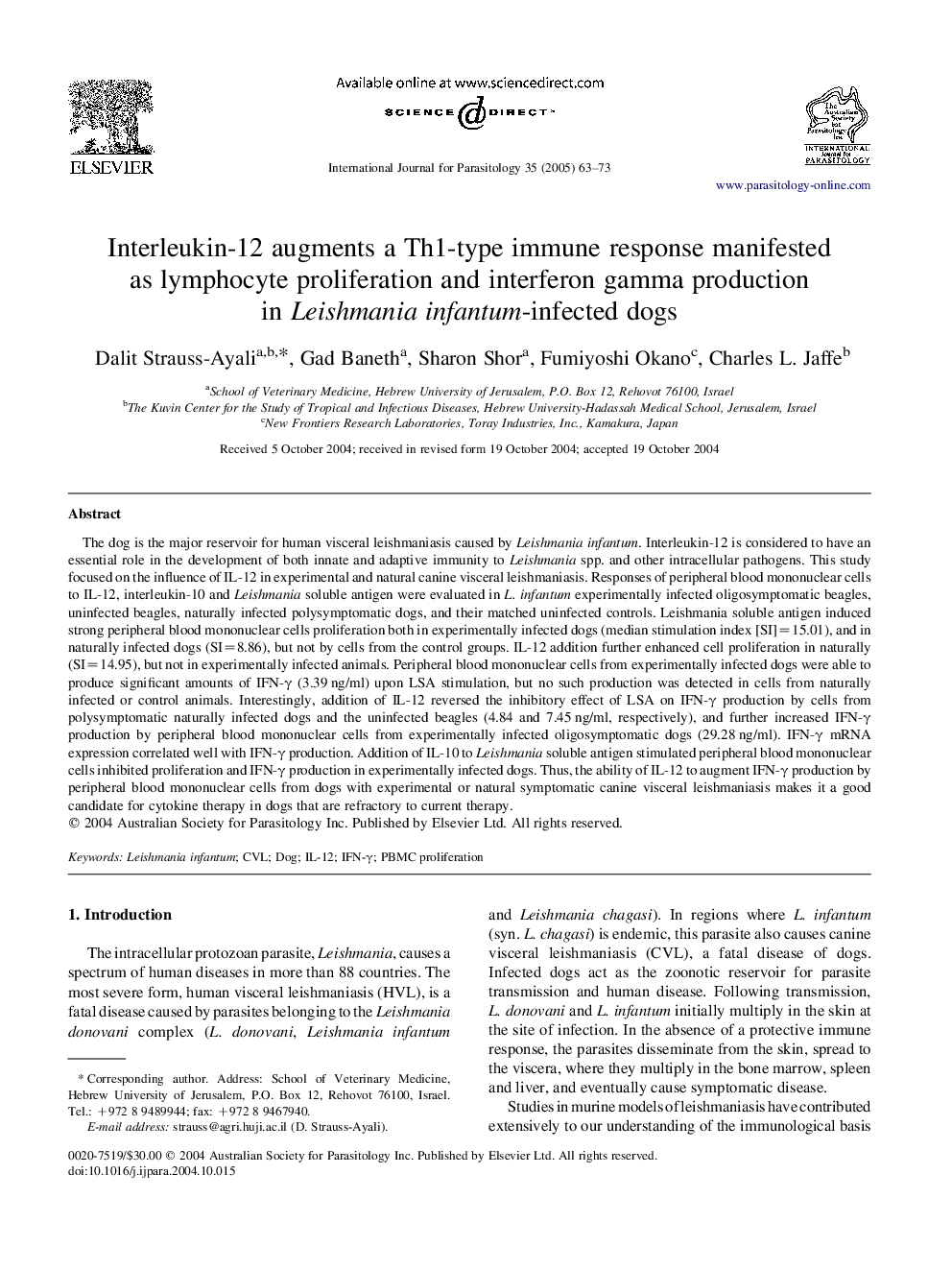| Article ID | Journal | Published Year | Pages | File Type |
|---|---|---|---|---|
| 8980080 | International Journal for Parasitology | 2005 | 11 Pages |
Abstract
The dog is the major reservoir for human visceral leishmaniasis caused by Leishmania infantum. Interleukin-12 is considered to have an essential role in the development of both innate and adaptive immunity to Leishmania spp. and other intracellular pathogens. This study focused on the influence of IL-12 in experimental and natural canine visceral leishmaniasis. Responses of peripheral blood mononuclear cells to IL-12, interleukin-10 and Leishmania soluble antigen were evaluated in L. infantum experimentally infected oligosymptomatic beagles, uninfected beagles, naturally infected polysymptomatic dogs, and their matched uninfected controls. Leishmania soluble antigen induced strong peripheral blood mononuclear cells proliferation both in experimentally infected dogs (median stimulation index [SI]=15.01), and in naturally infected dogs (SI=8.86), but not by cells from the control groups. IL-12 addition further enhanced cell proliferation in naturally (SI=14.95), but not in experimentally infected animals. Peripheral blood mononuclear cells from experimentally infected dogs were able to produce significant amounts of IFN-γ (3.39 ng/ml) upon LSA stimulation, but no such production was detected in cells from naturally infected or control animals. Interestingly, addition of IL-12 reversed the inhibitory effect of LSA on IFN-γ production by cells from polysymptomatic naturally infected dogs and the uninfected beagles (4.84 and 7.45 ng/ml, respectively), and further increased IFN-γ production by peripheral blood mononuclear cells from experimentally infected oligosymptomatic dogs (29.28 ng/ml). IFN-γ mRNA expression correlated well with IFN-γ production. Addition of IL-10 to Leishmania soluble antigen stimulated peripheral blood mononuclear cells inhibited proliferation and IFN-γ production in experimentally infected dogs. Thus, the ability of IL-12 to augment IFN-γ production by peripheral blood mononuclear cells from dogs with experimental or natural symptomatic canine visceral leishmaniasis makes it a good candidate for cytokine therapy in dogs that are refractory to current therapy.
Related Topics
Life Sciences
Immunology and Microbiology
Parasitology
Authors
Dalit Strauss-Ayali, Gad Baneth, Sharon Shor, Fumiyoshi Okano, Charles L. Jaffe,
